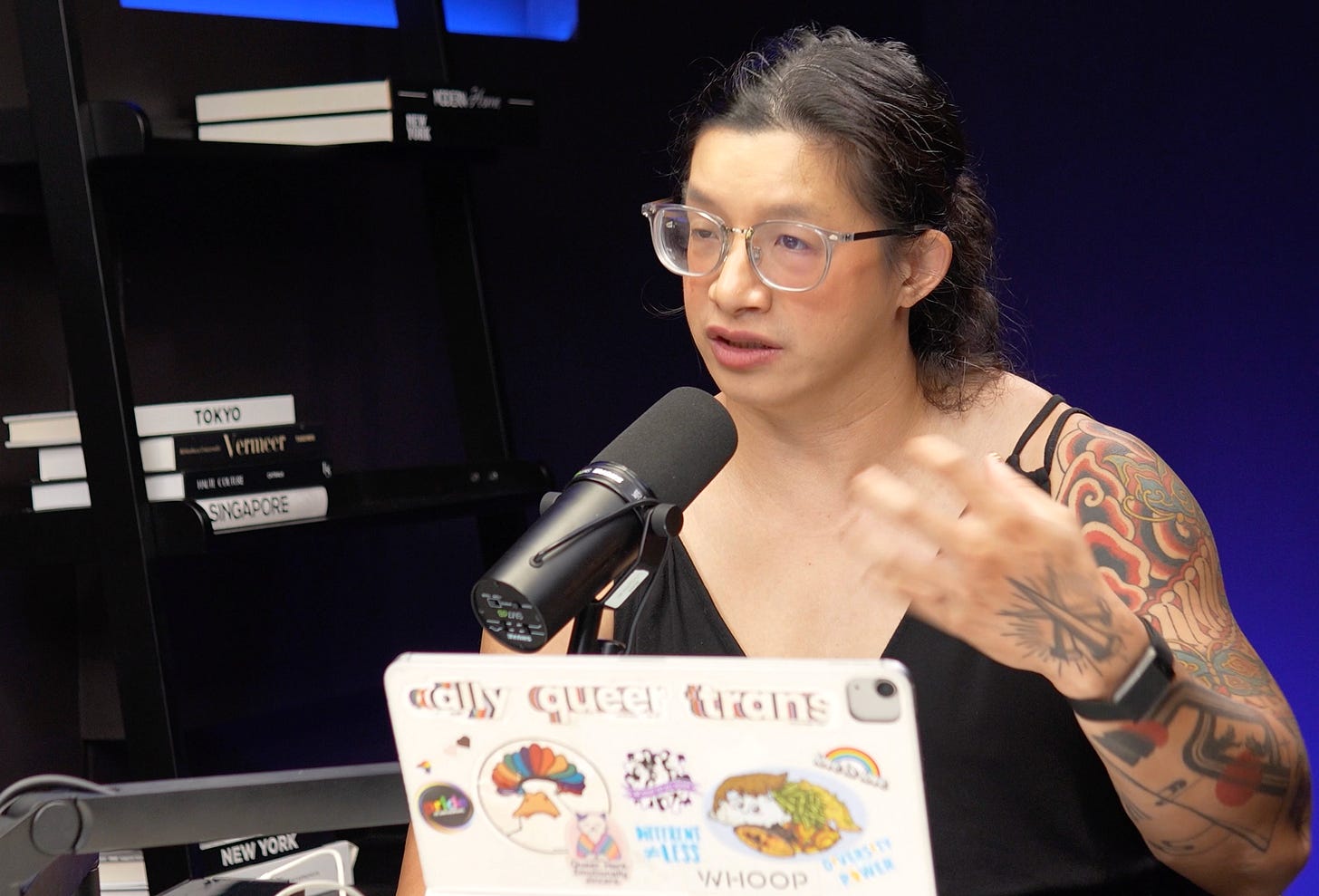What my victims taught me about empathy (even though they didn’t know it)
How a teenage bully, two arrests, and a life built in conservative Singapore turned my worst mistakes into the foundation of my empathy
I learned empathy in the ugliest place possible, and then I spent the next two decades trying to live in a way that honours that lesson because my teenage years were defined by harm, not healing, and it took a long time before I could even say that out loud without flinching inside my own skin.
When I look back now, I see a scared queer kid trying to perform masculinity like it was armour, and the people I hurt were collateral damage in a fight I never admitted I was having with myself because hiding felt safer than honesty.
When the police came for me at 15, I thought the punishment was the sentence, but the real sentence was seeing fear in the eyes of people who had done nothing to deserve it, and that image followed me long after the doors of Singapore Boys’ Home closed behind me.
The second arrest at 16 forced me to stop performing and actually look at who I had become, and sitting in that lockup next to grown men who had nobody left to call was the first time I understood what it means to hurt someone and still have to live with yourself the next morning because the boy I was becoming terrified me more than any judge or punishment.
That is the moment I started paying attention, and that is also when empathy stopped being a moral word adults used to lecture kids and became something alive, like a warning and a compass.
It taught me that you cannot build a life worth living if you keep pretending the people you hurt were just footnotes in your story.
That lesson followed me into adulthood, like when I started living authentically in Singapore, cycling through stares, whispers, cleaners trying to chase me out of men’s bathrooms, and older men looking at me like I was breaking a rule they could not name because my femininity disrupted their sense of order.
I used to react defensively, but over time I realised they were meeting the same fear I once carried, the one that made me perform an idea of masculinity so rigid it almost destroyed me. That is when empathy became a skill, not a feeling, and it shaped how I parent my neurodiverse daughter because she mirrors only what she sees, and I cannot teach her to be kind if I am still carrying shame from a life I have already outgrown.
It also shaped how I move with my wife, who stood by me through every shift in identity and expression, never asking me to shrink so she could stay comfortable, because she knows authenticity costs something in a conservative society like ours.
She chose to pay that cost with me, and it shaped how I left a workplace that made my existence political, how I rebuilt myself after multiple layoffs, and how I built Human Algorithm from zero because clarity only came when I stopped trying to outrun my past and started using it to make something real.
Now, when I coach founders, creators, and solopreneurs, I return to the same truth that began in that lockup at 16: people do not need perfect leaders; they need leaders who understand what it costs to change, and empathy is not softness but precision.
It is knowing where the wound sits because you have held your own, and it is why storytelling is not performance for me; it is responsibility, like when I teach people in the H.A.L.O. Masterclass to write with human-first clarity so their work carries weight, not noise, and helps the person who needs it most.
Every single part of my life today, from walking down Orchard Road in a skirt to lifting my daughter out of a meltdown to helping a founder refine a narrative that finally lands, is connected to that early lesson, and the people I hurt as a teenager will never know how much they taught me because empathy came from the harm I caused, not the harm I survived.
The only way I know how to honour that is to live in a way that the person I was then would not recognise the person I am now, and for my daughter to grow up seeing that accountability is not shame but courage.
So let me end with this question, because it is the one that changed me most: What would your life look like if your past stopped being a wound and started being your teacher?
See you next Sunday.
Early bird prices now available for Cohort 3 of the H.A.L.O. Masterclass
A virtual 6-week cohort designed to help you write with authenticity, own your story, and build a personal brand that people trust, not just follow.
No templates, no performative vulnerability, no copy-paste formulas.
This is the system used with founders, executives, and creators across tech, media, and social impact. You do not need a niche; you need a signal that makes people say,
This person knows who they are. I trust them.
Every session is recorded, and you can catch up before the next class.
Program schedule (January 2026)
Week 1: January 12, 2026
Week 2: January 19, 2026
Week 3: January 26, 2026
Week 4: February 2, 2026
Week 5: February 9, 2026
Week 6: February 23, 2026
All sessions: Mondays, 7.30pm - 9.30pm SGT on Google Meet, recordings included.
Only 12 seats are available.
Investment
Early bird: $497 (save $200) - ends December 15
Standard: $697
Payment plan: 3 payments of $179
Why grab early bird pricing?
Save $200 immediately
FREE Story Pillar Template (worth $97)
Bonus content system templates (worth $297)
One 60-minute 1:1 coaching session after the masterclass
Sign up here.


